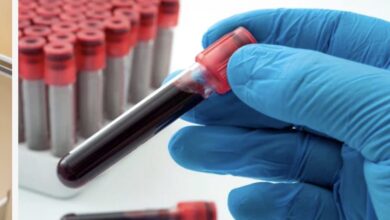HOW LONG DOES VACCINE IMMUNITY REMAIN?

It used to be thought that when you were vaccinated against any of the usual childhood communicable diseases, the immunity you received was for life. The vaccines developed for preventing major childhood diseases were permanently effective, so far as we knew. “Natural immunity,” acquired by having the disease, was also a “ticket” on the train of lifetime immunity. If you had mumps, measles, and chicken pox as a kid, there was no chance you would have it ever again; or so we thought. That is until the past 15-20 years, when adults vaccinated as children started developing cases of measles, leading to the discovery that measles vaccine, and others, had waning immunity.
Back in my practice days, I never dreamed I would see a patient with measles, rubella, or even polio. These diseases, along with smallpox and mumps, had been eradicated from society. In fact, when smallpox cases completely disappeared, vaccination was discontinued altogether. When I saw a patient who didn’t know if they had had measles or could not remember if they were vaccinated for it, the answer came when they had a blood antibody titre. I would test the patient’s blood for evidence of antibodies to measles. Titre is the name given to the level of antibody present in the patients bloodstream. Any patient with an antibody titre above a certain level had either natural or acquired immunity to that disease virus. What is now happening over time, is these antibody levels are decreasing making a patient vulnerable to that disease.
A major challenge for vaccine researchers is ensuring a vaccine causes long-term protective immunity. What’s become clear in the last two decades, though, is the discovery that vaccines all have a specific duration of immunity. From years of experience and study, the duration of immunity for each vaccine has been determined. These designations fall into three categories:
1. Immunity lasting 20 years or more
2. Immunity lasting between 5 to 20 years
3. Immunity lasting short term—usually 6-12 months
Vaccines with 20+ years of protection: measles, rubella, smallpox, yellow fever, hepatitis
B, and “inactivated” hepatitis A.
Vaccines with 5-20 years of protection: oral polio, diphtheria, tetanus, pertussis, human
papilloma virus, “inactivated” polio, hepatitis A live virus, chicken pox, mumps,
hemophilus influenza, pneumococcal, shingles.
Vaccines with short term protection: influenza, meningococcal, typhoid, acellular
pertussis, shingles, COVID-19.
In particular, smallpox, yellow fever, polio, and MMR (measles, mumps, rubella) provide long term protection. Smallpox and yellow fever vaccines are live, attenuated viral vaccines and induce a lifelong antibody response. In contrast, influenza vaccines produce waning immunity; it’s the nature of the beast. Although doctors would love to have it, no one has identified a “signature” molecule “capable of predicting the duration of an immune response.” They have discovered, however, a factor (a molecular signature) that is capable of predicting the duration of immune response. This molecular signature appears in the blood a few days after vaccination and correlates with the length of immunity. It is hoped this “breakthrough” will lead to a blood test that will estimate how long a vaccinee will have vaccine-induced immunity. This can help develop individualized booster schedules to guarantee personal immunity.
This would take any guesswork out of vaccine administration protocols. This blood test would tell doctors if the MMR vaccine given at 15 months of age needs to be repeated at 5 years of age, sooner, later, or at all. So until such a test is available, we must give booster doses when it is predicted they are needed. The lack of re-emergence of the disease, for the time being, indicates immunity is persisting, but using such a tool will lessen the chances of vaccine injury and increase disease control and eradication.
References: Baudon D. Blood Test Predicts How Long Vaccines Will Protect You. Medscape Medical News 2025 February 13.
Vashishtha VM, Kumar P. The Durability of Vaccine-induced Protection: An Overview. Expert Review of Vaccines 2024;23(2):389-408.




